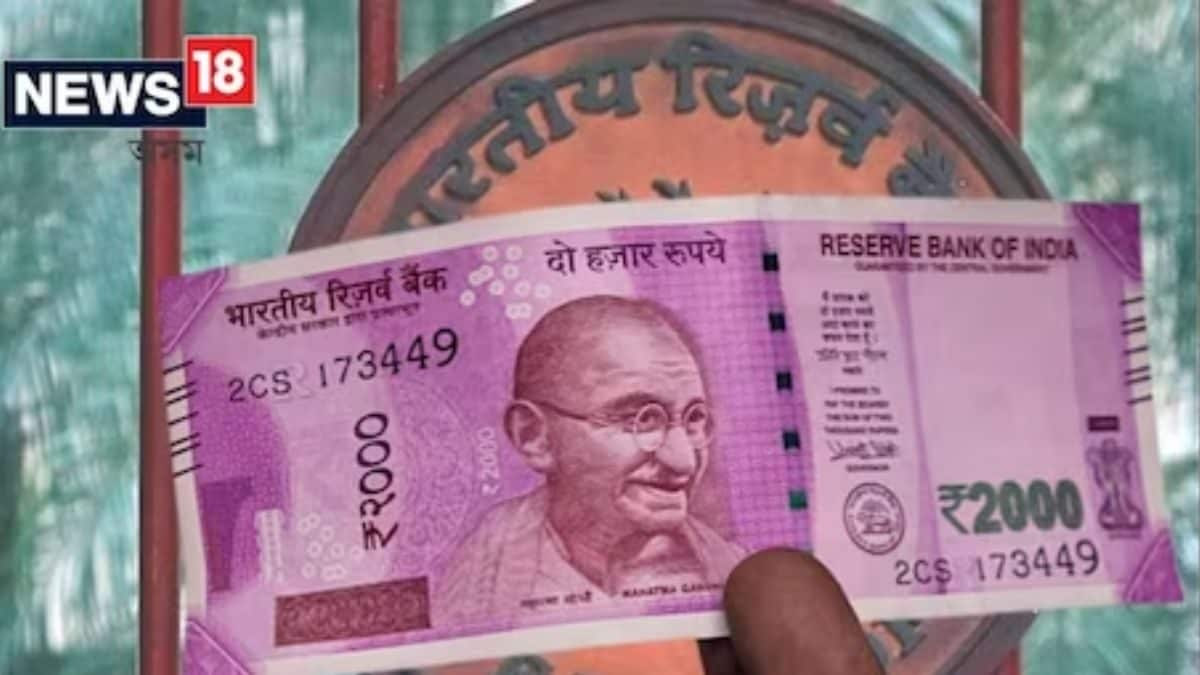Want to Exchange or Deposit Rs 2,000 Notes in Bank? Here’s a Step-By-Step Guide

The decision may be discreetly aimed at the super-rich who may have hoarded Rs 2,000 notes in black money and will now have to declare them.
The RBI has said that a non-account holder also can exchange Rs 2000 banknotes up to a limit of Rs 20,000/- at a time at any bank branch.
The Reserve Bank of India last week announced the withdrawal of Rs 2,000 currency notes from circulation but gave the public time till September 30 to either deposit such notes in accounts or exchange them at banks. Unlike the November 2016 shock demonetisation when old Rs 500 and Rs 1,000 notes were invalidated overnight, the Rs 2,000 notes will continue to be legal tender till September 30.
People who have Rs 2000 notes with them can exchange the notes in any bank or deposit them in their own accounts from May 23, 2023, onwards. The facility will be available till September 30, 2023. However, Rs 2000 currency notes will remain Legal Tender even after September 30, according to the Government.
A step-by-step guide to exchange Rs 2000 notes in bank
Step 1: Customers can visit the nearest branch of a bank and provide account details. As per RBI’s guidelines, even customers without bank accounts can exchange/deposit Rs 2,000 banknotes with other denominations.
Step 2: Banks will then provide the request slip, which must be filled by the customer. This will require basic details such as the ‘Tenderer’ name and information on the denomination such as the number of pieces and value. The customers will also have to mention the place and date of exchange.
Step 3: Customers can sign and submit the form along with their Rs 2000 notes to get them exchanged from the nearest bank.
Notably, deposits can be made without restrictions and are subject to existing instructions and applicable statutory provisions. Individuals have the option to exchange Rs 2,000 banknotes for other denominations up to a limit of Rs 20,000 at a time at any bank, beginning May 23, 2023, RBI said.
In a communication to the chief general manager of all its local head offices, the State Bank of India (SBI) informed that the facility of exchange of Rs 2,000 notes by the public up to a limit of Rs 20,000 at a time will be allowed without obtaining any requisition slip. With regard to the deposit of such notes in own account, RBI has not specified any limit but it will be subject to compliance with extant Know Your Customer (KYC) norms and other applicable statutory requirements.
“Further, no identity proof is required to be submitted by the tenderer at the time of exchange,” the communication dated May 20 said.
Exchange/ Deposit Limits
-One should know that members of the public can exchange Rs 2000 banknotes up to a limit of Rs 20,000/- at a time
-For deposit, members of the public can deposit Rs 2000 notes without restrictions subject to compliance with extant Know Your Customer (KYC) norms and other applicable statutory/regulatory requirements
Exchange/ Deposit Dates
-The RBI has said that people can start approaching the banks to deposit or exchange their Rs 2000 notes from 23 May, 2023
-The RBI also said that the last date for the process shall be 30 September, 2023
Exchange/ Deposit Fees
The RBI has said that an exchange facility shall be provided free of cost.
Exchange For Non-Account Holders
The RBI has said that a non-account holder also can exchange Rs 2000 banknotes up to a limit of Rs 20,000/- at a time at any bank branch.
For all the latest business News Click Here


